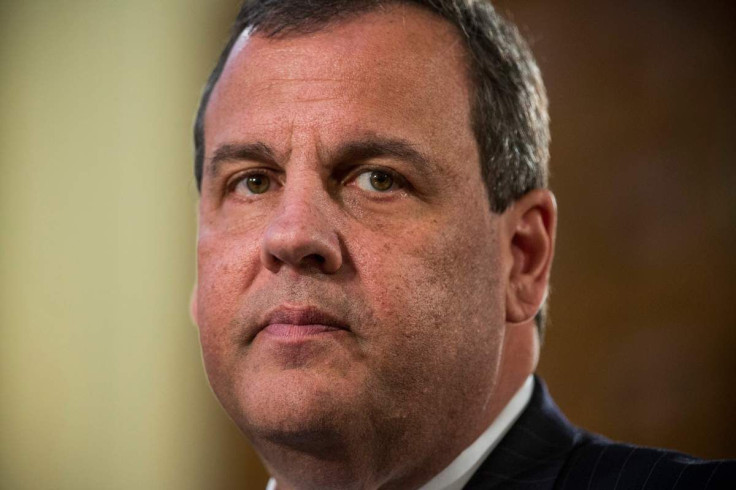Chris Christie Shifting Environmental Settlement Cash Out Of Cleanups And Into Tax Cuts, Other Programs

The money that New Jersey is getting this year from the state's environmental lawsuits -- which isn't as much as it might be -- will not be used to expand environmental cleanups, if Republican Gov. Chris Christie gets his way. Amid growing criticism of his administration's push to settle a case against ExxonMobil for pennies on the dollar, Christie is already moving to shift settlement money out of environmental remediation programs and into his other priorities -- including major corporate tax cuts.
The proposed shift is buried deep within Christie's 2016 budget proposal, which was released just four days after his administration moved to close the $8.9 billion ExxonMobil case for just $225 million. If, as the administration plans, that ExxonMobil settlement is finalized before the end of the fiscal year, even more settlement money could be shifted away from New Jersey environmental programs. The $225 million settlement proposal was announced Thursday.
According to documents reviewed by International Business Times, Christie is budgeting $280 million in settlements in 2016. Legislators say that includes roughly $130 million from his administration’s cut-rate settlement with Occidental Petroleum -- a donor to the Republican Governors Association, which Christie chaired in 2014. The documents show that Christie proposes to use the settlement money from that 2014 Passaic River pollution case for a budget plan that cuts overall funding for environmental protection and spill cleanups, while devoting more than $600 million to phasing in new business tax cuts.
Christie’s office did not respond to IBTimes’ request for comment. On Friday, IBTimes reported that the Christie administration is empowered to make such a move after it slipped one-year language into the state’s budget, explicitly allowing the governor to shift all settlement money above $50 million out of cleanups and into the state’s general fund, where it can be used for other initiatives, including tax cuts and corporate subsidies. Critics say the language -- which is in force only until June -- effectively incentivizes Christie to settle environmental cases quickly and cheaply so that he can use whatever money is recovered for his own priorities.
While that language allows specific settlements to earmark more than $50 million for cleanups, the Christie administration structured the Occidental case’s settlement to put just $50 million into “restoration projects in and around” the affected area, and then to devote $140 million to the state’s general fund, where it can be used for other programs. In that case, a judge previously ruled the company was liable for between $1 billion and $4 billion.
In the ExxonMobil case, a Feb. 20 letter from the office of the Christie-appointed state attorney general to a New Jersey judge says the state and the company are aiming to get final judicial approval for the proposed settlement “by mid- to late May.” The budget language that allows Christie to spend settlement money on his own priorities expires June 30.
According to state Sen. Raymond Lesniak, an opponent of the settlement, that could give the Christie administration enough time to shift the money out of cleanup and environmental programs. Lesniak, a Democrat, told IBTimes he believes legislators will be able to derail the Christie administration’s proposed timetable for the ExxonMobil settlement, so that the administration loses its power to divert the money before the ExxonMobil cash begins flowing to the state.
“I think everything that we’re doing now, including taking an appeal if necessary to the appellate division, will delay it well beyond the June 30 deadline,” Lesniak said, adding that legislators “will not approve a budget with that language in this time around.” The Occidental settlement money, he said, is “gone.”
“It means the environmental restoration and other cleanups that are needed in those areas and throughout the state are just not going to get done as extensively as they would have if the money went where it should have,” said Lesniak, who on Thursday asserted the settlement warranted the resignation of John Hoffman, Christie’s appointed attorney general.
Despite the infusion of settlement money from environmental litigation, Christie’s 2016 budget proposes an overall $5 million cut to the state’s Department of Environmental Protection. Within that department's budget, Christie is proposing a $9 million cut in state appropriations for the Hazardous Discharge Site Cleanup Fund. The budget document also lists no new revenue for the New Jersey Spill Compensation Fund. The same budget document boasts that Christie has enacted “over $2.3 billion in business tax cuts and reforms.” According to a report by NJ Spotlight, those tax cuts are estimated to cost the state roughly $660 million in the coming year, if Christie’s proposals are enacted.
“Christie is targeting the environment with his budget, not only cutting back staff and money for programs, but taking money out of the Department of Environmental Protection and taking environmental settlement money to plug holes in his budgets, where he gives huge tax cuts to corporations,” said Jeffrey Tittel of the New Jersey Sierra Club.
As previously reported by IBTimes, ExxonMobil and Occidental have contributed $2 million to the Republican Governors Association since 2009. The organization supported both of Christie’s bids for governor.
Archer & Greiner, a law firm with deep ties to the Christie administration, represented both ExxonMobil and Occidental in the cases that resulted in the recent environmental settlements. This same firm has worked as an outside counsel for the office of New Jersey's attorney general in separate matters.
The Christie administration's $225 million settlement in the ExxonMobil case now faces a mandated public comment period and still must be approved by a judge.
© Copyright IBTimes 2024. All rights reserved.












